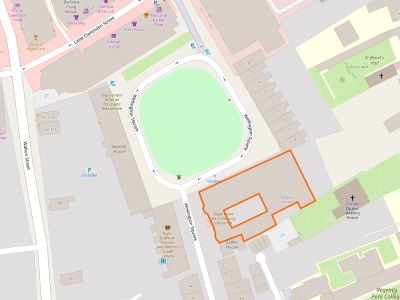
Date/Time
Date(s) - 20 Sep 2023
7:30 pm - 9:00 pm
Location
Rewley House
Registration
https://oxfordshire200923.eventbrite.co.uk/
Categories

Prof. Gordon S. Blair, Head of Environmental Digital Strategy, UKCEH
Contemporary digital technologies can make a profound impact on our understanding of the natural environment in moving toward sustainable futures. Examples of such technologies included sources of new data (e.g., an environmental Internet of Things), the ability to storage and process the large datasets that will result from this (e.g., through cloud computing), and the potential of data science and AI to make sense of these data alongside human experts. However, these same trends pose a threat to sustainable futures through, for example, the carbon footprint of digital technology and the risks of this escalating through the very trends mentioned above. This talk will explore this ‘tale of two cities’, reflecting on my experiences of my work at UKCEH where I explore the role of digital innovation in supporting contemporary environmental science, whilst also being aware of the potential negative impact of such technologies on the very environment we are seeking to understand and steer towards more sustainable futures. The talk will conclude with thoughts on how these two perspectives can be reconciled.
About Prof. Gordon Blair
Prof. Gordon Blair is Head of Environmental Digital Strategy at UKCEH. He is also a Distinguished Professor of Distributed Systems at Lancaster University where he holds a part-time post (20%). He is also Co-Director of the Centre of Excellence in Environmental Data Science (CEEDS), a joint initiative between UKCEH and Lancaster University. His current research interests focus on the role of digital technology in supporting environmental science. This includes new forms of environmental monitoring and data acquisition, including the role of Internet of Things technology, new forms of computational infrastructure to support the storage and processing of such data, specifically using cloud computing, and new forms of analysing and making sense of this data using data science and AI. He is particularly interested in the role of virtual labs in supporting this end-to-end pipeline and in enabling a new kind of science that is more open, collaborative and integrative. Most recently, through CEEDS, he has become interested in the role of digital twins in supporting environmental science. This all builds on a strong legacy of research in distributed systems, having been involved since the inception of the field in the early 1980s. His core research in this area focused on the middleware architectures that underpin complex distributed systems applications and services, including examination of key distributed properties such as interoperability and how these can be achieved in the complex and dynamic distributed systems of today.
Hybrid Meeting
This event will be held both “in person” and “via Zoom”.
“In Person” Logistics
The “in person” meeting will be held at our new meeting place: Rewley House, 1 Wellington Square, Oxford OX1 2JA. The meeting will commence at 7:30pm, and an assortment of light refreshments will be available beforehand. Please register for the event as usual using the Eventbrite link on the website or via MeetUp, where you will be able to indicate whether you are attending via Zoom or in person.
COVID-19
BCS is following government guidelines and we would ask attendees to continue to also follow these guidelines. Please go to https://www.nhs.uk/conditions/coronavirus-covid-19/ for more information, advice, and instructions.
Add to calendar: iCal